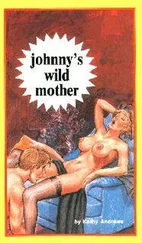John Wellwood - Norman Macleod
Здесь есть возможность читать онлайн «John Wellwood - Norman Macleod» — ознакомительный отрывок электронной книги совершенно бесплатно, а после прочтения отрывка купить полную версию. В некоторых случаях можно слушать аудио, скачать через торрент в формате fb2 и присутствует краткое содержание. Жанр: foreign_prose, foreign_religion, Философия, foreign_psychology, foreign_antique, на английском языке. Описание произведения, (предисловие) а так же отзывы посетителей доступны на портале библиотеки ЛибКат.
- Название:Norman Macleod
- Автор:
- Жанр:
- Год:неизвестен
- ISBN:нет данных
- Рейтинг книги:4 / 5. Голосов: 1
-
Избранное:Добавить в избранное
- Отзывы:
-
Ваша оценка:
- 80
- 1
- 2
- 3
- 4
- 5
Norman Macleod: краткое содержание, описание и аннотация
Предлагаем к чтению аннотацию, описание, краткое содержание или предисловие (зависит от того, что написал сам автор книги «Norman Macleod»). Если вы не нашли необходимую информацию о книге — напишите в комментариях, мы постараемся отыскать её.
Norman Macleod — читать онлайн ознакомительный отрывок
Ниже представлен текст книги, разбитый по страницам. Система сохранения места последней прочитанной страницы, позволяет с удобством читать онлайн бесплатно книгу «Norman Macleod», без необходимости каждый раз заново искать на чём Вы остановились. Поставьте закладку, и сможете в любой момент перейти на страницу, на которой закончили чтение.
Интервал:
Закладка:
CHAPTER II
1838-1843
LOUDOUN—NON-INTRUSION CONTROVERSY
Just after his return from this tour, Macleod was presented, virtually at the instance of Chalmers, to the living of Loudoun, in Ayrshire. On March 5, 1838, he was ordained. From this time onward his private journal is largely the record of religious introspection. With the other earnest ministers of that period, he took up the feelings and the language of the old Puritans. One cannot forget Robertson, on his appointment to the charge of Ellon, pacing the room for hours in the silence of the night, ‘and, all unconscious of being overheard, praying for mercy to pardon his sin and grace to help him in his embassy for Christ.’ This is good to know, but a little of it goes a long way. When my brother has entered into his closet and shut the door, I do not wish to spy upon his spiritual straits, or listen at the keyhole to his penitential groans. That Macleod, on assuming his first ministerial charge, deeply felt his responsibility, is clear from his doings as well as from his diary. The young minister had never doubted the truth of the religion which, more by example than by precept, had come down to him from his fathers. And the doctrines of Christianity were to him not merely true, they were vividly realised in his heart and imagination. In criticism, at this time, his highest flight was to name certain antinomies of Calvinism as nuts to crack. On the other hand, in his frank acceptance of the goodly world, and in his passion for characters (which was such that he would go scouting for the ludicrous), he seemed to have more of the humanist than the saintly temperament. Nothing could have been more alien to him than the plaint of a latter-day poet—
‘Strange the world about me lies,
Never yet familiar grown,
Still disturbs me with surprise,
Haunts me like a face half-known.’
And he had met in Germany, somewhat to his astonishment, men who danced on a Sunday, and still showed Christian graces; nay, men who were reverent and pious, though they could not have subscribed to the Westminster Confession.
The parish of Loudoun is a broad green wooded valley, through which runs the Irvine Water, celebrated in song. At one end, on a pleasant slope, the towers of the castle shine out above the trees; at the other, several miles distant, lie the villages of Newmilns and Darvel, where the mass of the population resided. The farmers were a sturdy, pious race, as befitted the descendants of the Covenanters; but in the weavers Macleod encountered a new and formidable type of sinner. The eighteenth century had spoken to their fathers; on matters of religion their authority was Tom Paine; of politics, Robespierre qualified by Chartism. Thus the minister, whose business, as he conceived it, was to pilot souls to heaven, had no sooner taken the helm than he found himself among rocks and breakers. He was little of a politician, and no priest, which was fortunate, as a formal defence of the Church or of Toryism against such antagonists would have been the worst tactics; but, being a man , he got hold of many of the weavers in the end. “Poor souls!” he could say; “how I do love the working classes!” and that was a note he never lost. Besides the human, he approached them on the secular ground. On geology, which was then a fine new weapon to the adversaries of the Church, he gave a course of lectures which made a sensation, particularly among the hand-loom atheists, many of whom became communicants.
The moral condition of Newmilns was terrible in the young pastor’s eyes, and he would sometimes despair, thinking that all his efforts were in vain. There was in him some touch of the divine yearning, ‘O Jerusalem, Jerusalem!’ If he woke in the night-time, he communed with God. Far from flagging, the ambassador for Christ piled agencies on means, and, as it were, took the place by storm. The church was crowded to suffocation; he preached on week-days in various parts of the parish, instituted Sunday schools, prayer meetings, and meetings for young men; and, for the sake of the poorest of the poor, held services to which none were admitted who wore good clothes. In the course of a year he would visit several thousand families, and as in public he denounced evil-doers in general, in private he singled them out for rebuke and exhortation.
In his Loudoun ministry there is just perceptible an official smack, a note of externality; he has not yet entirely freed himself from the mechanical theory of salvation. For example, he was much taken up with the work of winning or, if need were, extorting confessions of repentance and faith from dying unbelievers. There was one with whom the zealous young ambassador strove hard, all to induce the invalid to speak. ‘Before I go have you nothing to say?’ The man lifted up his skeleton hand and panted out—’No, no, noth—nothing.’ At a later period Macleod would rather have sympathised with the poet, who wanted no priest—
‘—to canvass with official breath
The future and its viewless things,
That undiscovered mystery
Which one who feels death’s winnowing wings
Must needs read clearer, sure, than he.’
The manse of Loudoun is a little way out of Newmilns, in the direction of the castle, and overlooking the road; on one side, a pretty garden, and at the back the glebe, a beautiful brae. In that very house Robert Burns once spent a night. Coming down in the morning, he was asked whether he had slept well. ‘I have been praying all night,’ the poet answered; ‘if you go up to my room you will find my prayers on the table.’ He had been thinking of the sweet life of the household and all he might have been. But this tradition did not move Macleod; indeed, at that time he was unjust to the poet, as what cleric was not? Invited to take the chair at a Burns Festival in Newmilns, he replied (disloyal to Wordsworth for once) that he could not, dared not, as a Christian minister, commemorate such a man.
His life at Loudoun, notwithstanding his professional industry, was full of brightness and charm. Much of his leisure was passed among his flowers, or he went into the woods and sat listening to the birds. In the winter evenings, to his sister Jane, who kept house for him, he read aloud from the works of Shakespeare, Scott, and, a new writer, Dickens; and she in turn entertained him with German sonatas and Gaelic songs. At Loudoun Castle, then inhabited by the Dowager Marchioness of Hastings, widow of the celebrated Governor-General, he was not only a welcome guest, but a trusted friend. His conversational gifts might account for his acceptability at the tables of the great, but he was never the mere diner-out, still less the nice chaplain. In any company he would speak, when occasion offered, from the heart to the heart, and it was at first startling to see the laugh die out of the face of the big jolly parson, and hear sudden lessons or tales that shook the inmost soul, and drew the awkward tear. Lady Hastings gave him the key of a vault in Loudoun Kirk where lay the right hand of her dead husband, which had been sent from Malta; and, sure enough one morning, as the Marchioness lay dying, he was summoned to fetch the relic that it might be buried in her grave.
The ‘coffee-room fellows’ held reunions at Loudoun. Referring to one of these, Shairp says: ‘We wandered by the side of the Irvine Water, and under the woods, all about Loudoun Castle, and Norman was, as of old, the soul of the party. He recurred to his old Glasgow stories, or told us new ones derived from his brief experience of the Ayrshire people, in whom, and in their characters, he was already deeply interested. All day we spent out of doors; and as we lay, in that balmy weather, on the banks or under the shade of the newly-budding trees, converse more hearty it would be impossible to conceive.’
Читать дальшеИнтервал:
Закладка:
Похожие книги на «Norman Macleod»
Представляем Вашему вниманию похожие книги на «Norman Macleod» списком для выбора. Мы отобрали схожую по названию и смыслу литературу в надежде предоставить читателям больше вариантов отыскать новые, интересные, ещё непрочитанные произведения.
Обсуждение, отзывы о книге «Norman Macleod» и просто собственные мнения читателей. Оставьте ваши комментарии, напишите, что Вы думаете о произведении, его смысле или главных героях. Укажите что конкретно понравилось, а что нет, и почему Вы так считаете.












